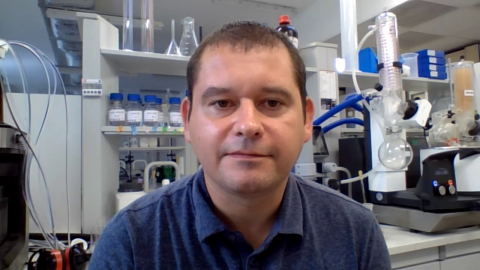The interdisciplinary team of researchers was recognized for discovering a new group of active substances and a new therapeutic strategy that can be used to treat parasitic diseases. The title of the awarded project is " PEX14-PEX5 protein-protein interaction as a new molecular target in the therapy for infections caused by Trypanosoma parasites." The research work, which resulted in the discovery of new active substances, was conducted by Maciej Dawidowski PhD, at, among others, the Faculty of Pharmacy of MUW. At present, the research is being continued at our University in an extended group of scientists who are conducting experiments in the field of designing and obtaining new substances that disrupt the biogenesis of glycosomes and peroxysomes by inhibiting the formation of the PEX14 and PEX5 peroxins complex.
Among the Erwin Schrödinger Prize winners were also: prof. Michael Sattler, dr. Grzegorz Popowicz (Institute of Structural Biology, Helmholtz Centre in Munich) prof. Ralf Erdmann, dr. Vishal Kalel (Institute of Biochemistry and Patobiochemistry, Ruhr University of Bochum)
More information about the awarded project:
https://www.helmholtz.de/en/health/new-active-substance-against-parasit…
https://www.youtube.com/watch?v=tyMDj6AE6WY&feature=emb_title
Key publications:
Dawidowski M, et al. J Med Chem. 63, (2020), 847-879, DOI: 10.1021/acs.jmedchem.9b01876
Dawidowski, M, et. al. Science 355, (2017), 1416-1420, DOI: 10.1126/science.aal1807
